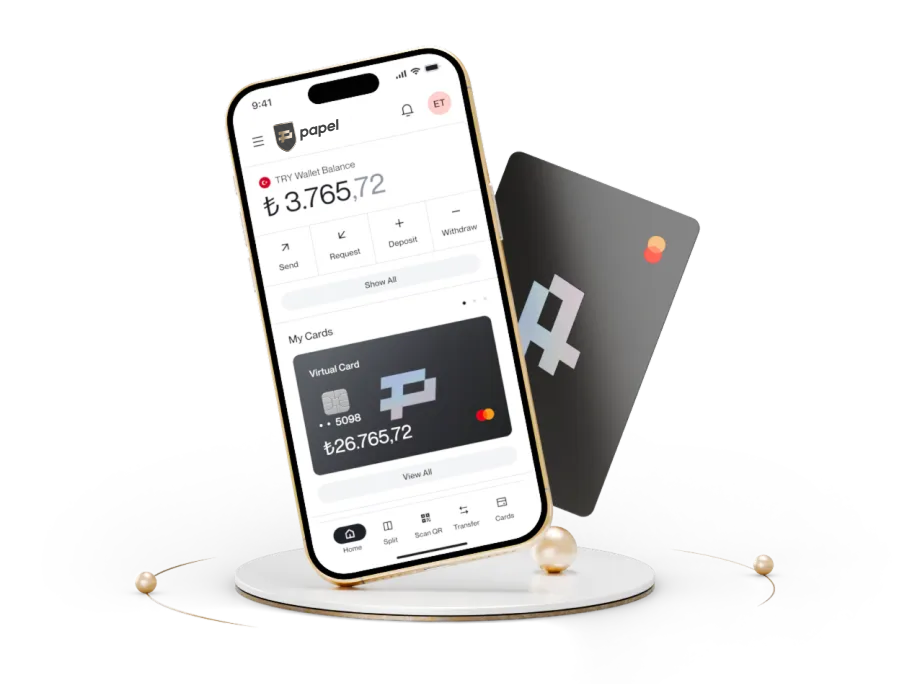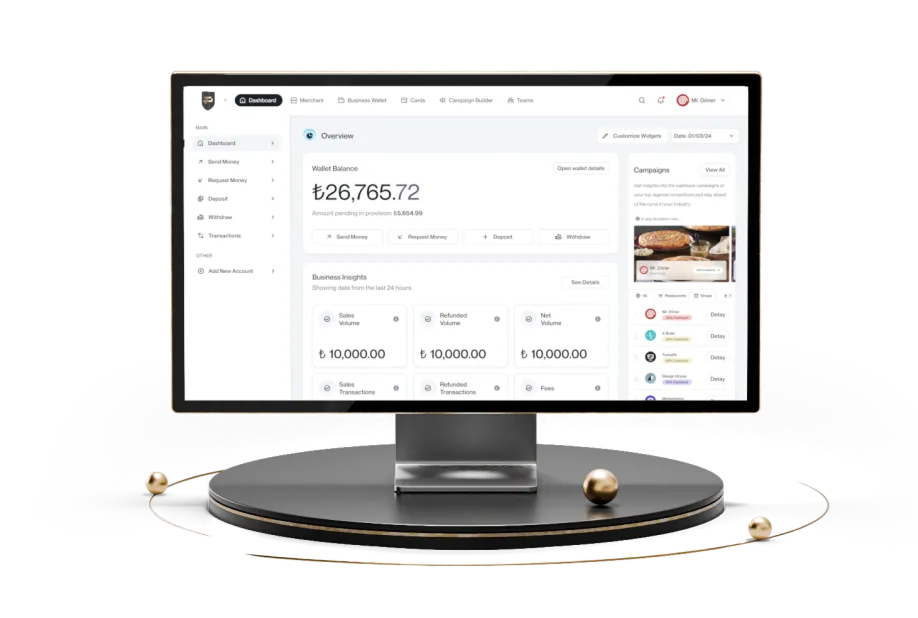What is Personal Data? How to Ensure Personal Data Security?
Fraudulent activities carried out with unidentified emails or copies of frequently visited websites are diversifying daily, highlighting the importance of measures to ensure personal data security. Our new article delves into topics such as types of personal data, data security, potential threats, and protection methods...
What is personal data?
Personal data refers to any information that can be used to identify or distinguish an individual. Personal data may include information about a person's identity, characteristics, habits, or other private details. These data can be used directly or indirectly to identify an individual. Examples of personal data include:
Personal Information
Basic personal data such as a person's name, gender, date and place of birth, marital status, etc.
Turkish Identity Number (T.C. Kimlik Numarası)
A unique identification number assigned to every individual in Turkey.
Address Information
Information about residential, work, or other addresses.
Contact Information
Contact details such as mobile or landline phone numbers, personal or company email addresses.
Health Information
Information about health status, medical history, treatments, and medications used.
Financial Information
Bank account details, credit card information, and other financial status-related information.
Online Behavior
Online activities such as shopping, browsing, and social media interactions.
What is data security?
"Data security" refers to the collective measures taken by both institutions and individuals who are entrusted with data to keep it safe. Every action and precaution taken to protect data can be considered part of data security.
Why is data security necessary?
Failure to ensure data security can lead to significant financial losses for companies. Their hard-earned reputation built over the years may be tarnished, and substantial resources may be required to address the negative perceptions held by affected customers. Neglecting data security can also have serious consequences for individuals. A malicious attacker with sufficient sensitive information about an individual can engage in activities that affect the person's quality of life, leading to significant financial burdens for the individual to bear.

What are the threats to data security?
Personal data can be targeted through various methods by malicious individuals or groups. Some common attack methods where personal data can be targeted include:
Phishing
Phishing refers to methods where individuals are tricked into providing their personal information or downloading malicious software through fake emails, websites, or messages. Phishing attacks can take the form of suspicious emails from an unknown source in your inbox or appear as a fake but highly realistic social media ad resembling an advertisement from a well-known e-commerce platform you frequently visit.
Data Breaches
Data breaches occur when personal data is leaked or stolen through security vulnerabilities in online services or companies. These breaches can result in attackers obtaining usernames, passwords, credit card information, and more.
Data Mining
Personal data can be automatically collected and analyzed through web browsers, applications, and other digital tools. This data can be used for advertising and marketing purposes, as well as to gain insights into user habits and preferences.
Use of Public Information
Personal information shared on social media, blogs, and other online platforms can be collected by malicious individuals and used for malicious purposes.
Malicious Software
Malicious software (viruses, trojans, worms, etc.) can infiltrate users' computers or devices to access personal data.
Social Engineering
Attackers can use manipulation techniques to gain or deceive people's trust. For example, they may impersonate bank officials over the phone or email to request personal information. Social engineering is one of the most common and damaging methods today.
Open-Source Intelligence
Personal data can be extracted from information shared by individuals in open sources (e.g., public records, social media profiles, blogs).
Sharing with Others
Personal data should remain personal. Care should be taken when sharing information with friends or acquaintances, as power dynamics in relationships can change over time, and individuals with whom information is shared may later misuse it.

How can data security be ensured?
Protecting personal data is an important step against such dangers. It is important to use sources you trust and consider reliable before sharing personal information and to prefer strong passwords. Additionally, devices should be protected using up-to-date security software and security applications. Ensuring data security requires raising awareness about this issue among individuals. Considering that anyone can be a target, we should take the necessary precautions to ensure data security. Some measures for data security include:
Strong Passwords
Choose passwords that are easy to remember but difficult to guess, and regularly update them. Avoid using the same password for multiple accounts to avoid compromising data security.
Updated Software
Keep all software and programs up to date to prevent security vulnerabilities.
Antivirus Program
Use a reliable and robust antivirus program to strengthen your defense against attackers.
Data Backup
Increase data security by regularly backing up your data. You can store backups in a cloud storage system or on an external storage device.
Beware of Phishing Tactics
Be cautious of any email attachments and links from suspicious email addresses. Always verify the domain name and sender's email address before opening emails.
Encryption of Data
Encrypt sensitive data to store it securely, especially for data stored and shared over the internet.
Strong Network Security
Ensure you are connected to a secure Wi-Fi network. Avoid connecting to public Wi-Fi networks unless necessary, and if you must, use a trusted VPN.
Careful Data Sharing
Be mindful of which personal information you share online, especially on social media platforms. Try to minimize the personal data you share.
Data Awareness
Keep updating your knowledge about potential threats and ways to protect against them.
Physical Security
Ensure that others cannot physically access your devices. Lock your device when stepping away from your computer and ensure that no one can see your phone or computer screen while in use.
The privacy and security of personal data are of utmost importance, and these data must be protected from unauthorized access, misuse, or leaks. Many countries have legal regulations and regulations governing the processing and protection of personal data. These laws include specific rules and standards for the collection, use, and sharing of personal data. Protecting personal data is crucial for safeguarding individuals' privacy and security.

